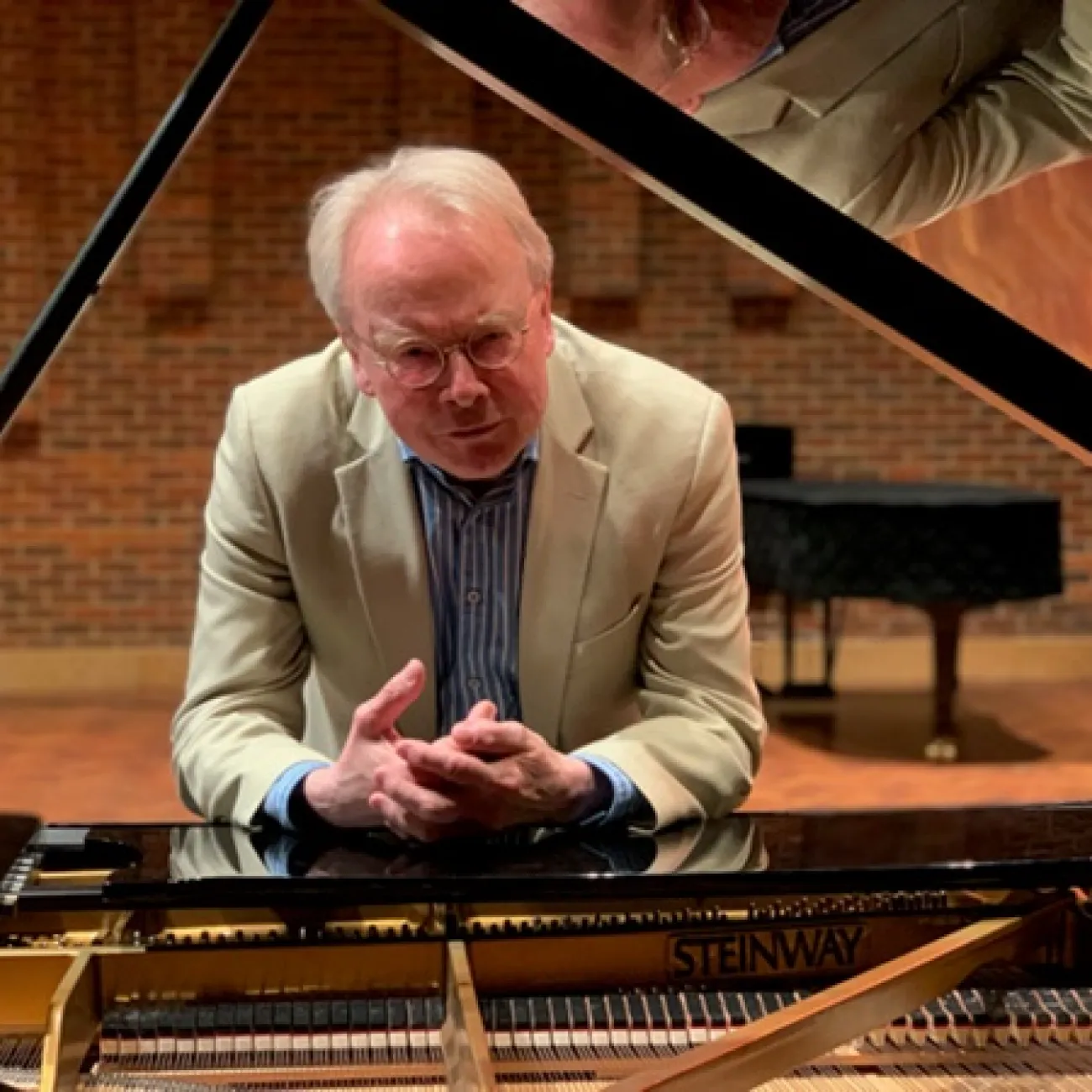About
David Owen Norris won the Prize of the City of Geneva in the Geneva Competition, and the Accompanist’s Prize at Leeds, and since his appointment to the prestigious Gilmore Artist Award, has performed on pianos both ancient and modern all across the world, with concerto appearances in the BBC Proms, concert tours of Europe, Australia and North America and a discography of 60 commercial CDs. Recordings recently released include Mozart on fortepiano for Hyperion, featured in the New York Times, the complete Chamber Music of Grace Williams, which was a Guardian CD of the Week, and the complete songs of Sir Arthur Sullivan on Chandos.
He was the regular presenter of The Works and In Tune on BBC Radio 3, where in 2025 he presented his 37th Building a Library. His many Radio 4 programmes include the iPod series, exploring the musical tastes of historical celebrities, from Nell Gwynn to Oscar Wilde. His television work includes the long-running BBC2 series Chord of the Week, and programmes about authentic performance, English composers, and historical pianos.
You can update this in Pure (opens in a new tab). Select ‘Edit profile’. Under the heading and then ‘Curriculum and research description’, select ‘Add profile information’. In the dropdown menu, select - ‘About’.
Write about yourself in the third person. Aim for 100 to 150 words covering the main points about who you are and what you currently do. Clear, simple language is best. You can include specialist or technical terms.
You’ll be able to add details about your research, publications, career and academic history to other sections of your staff profile.
